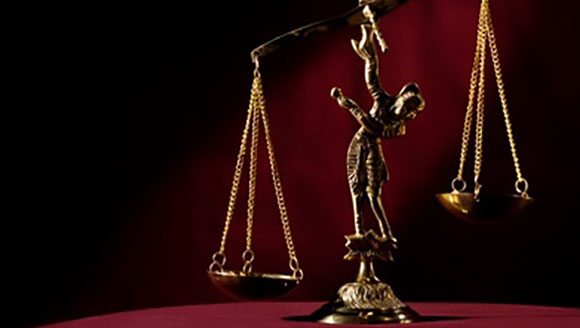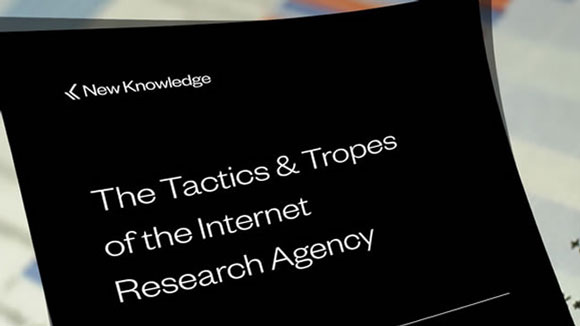Protecting the Most Fundamental Right We Have: The Right to Vote
What is the state of Black America? To answer this often-repeated question, it is vital to assess the state of progress in areas like economic parity, jobs and justice, fair housing, criminal justice reform as well as advances in politics, business and elsewhere. Ironically, one area that often gets overlooked happens to be one of the most fundamental rights we share as Americans: the right to vote.
There was a time when Black people were legally and systematically barred from participating in the voting process. It was only after immense sacrifice—including bloodshed and the tragic loss of so many lives—that we secured the right to vote in a nation that was quite literally built on our backs; largely constructed through our hard and uncompensated labor. In 2019, our hard-earned right to vote is under renewed threat as politicians and those with evil agendas are barring many from voting, using modern-day schemes based on old-school motives. The National Action Network (NAN) is responding the way it always has in the face of injustice: we are fighting back.
On the legislative front, NAN worked on H.R. 1, the For The People Act; and H.R. 4, the Voting Rights Advancement Act, in concert with other coalition groups. In a symbolic act, House Democrats introduced and passed the For The People Act as their first legislative achievement of the year, prioritizing the urgency of contending with existing problems and proposed solutions in four areas: voting, redistricting, political money and ethics. The Voting Rights Advancement Act has a simple mission: to ensure that fair access to the ballot for each and every American is protected—as it should be.
NAN is also gearing up for the Census 2020 campaign. Our work will highlight the critical importance of 2020 for elections and the census. NAN is carefully monitoring several gerrymandering cases before the Supreme Court such as Common Cause v. Rucho. We are also reaching out to clergy in Florida and urging them to lead the effort to register formerly incarcerated people to vote. After the historic passage of Amendment 4 last year, restoring the right to vote for some 1.4 million formerly incarcerated men and women in Florida, it is up to Black churches and the community to reach out to them and encourage them to register and exercise their newly-restored right. This right is already under attack from Florida Republican lawmakers who are attempting to pass measures that put in place new roadblocks to voting, including requiring those with felony records to fully pay off all court fees and fines before being able to vote. It is akin to a modern-day poll tax; we must not allow it to be instituted and undermine the will of the people in Florida.
In 2013, the Supreme Court effectively gutted the Voting Rights Act when it eliminated a key section of the law that required areas with a history of discrimination to get preclearance from the federal government before changing any election laws. This decision opened the floodgates for a slew of draconian policies like new voter ID laws, the elimination of early voting days, same-day registration and more—measures which were disproportionately felt in Black and low-income communities. NAN raised an alarm bell on the subject then and continues to focus on this important topic now. Because the next presidential election is right around the corner, now is the time to take on all strategies or tactics used to suppress our right to vote.
2019 marks the 400-year anniversary of the first documented arrival of “some 20 and odd” enslaved Africans to Point-Comfort, an English settlement that would become the state of Virginia. Even after emancipation, it would take decades of untold sacrifice, organizing, demonstrations, boycotts and more until the Voting Rights Act was finally enacted and signed into law. From poll taxes and literacy tests to modern forms of disenfranchisement like harsh voter ID laws and the steady elimination of voting locations, the fight for voting rights unencumbered by racism and extreme partisan loyalties remains a long and difficult journey.
The 2018 midterm election ushered in the most diverse Congress in this nation’s history. That feat is a testament to the tireless work of established groups and grassroots level movements that organized on the ground for years to register people to vote. It is a testament to the people who exercised their right to vote and the people who heard the call, decided to take action and ran for office. Because we fully expect to encounter that same vigor, enthusiasm and commitment for the 2020 election, we understand that we must also expect extensive attempts to block our access to the ballot box.
Unfortunately, voter suppression is nothing new. It is as old as the American constitution. Fortunately, the fight to push back against voter suppression is just as long—and vigorous. Whether it was the Bloody Sunday march on the Edmund Pettus Bridge, the March on Washington, the assassination of one of our greatest civil rights leaders, Rev. Dr. Martin Luther King Jr. or the countless sacrifices on the long road to secure our right to vote—among other rights—we can neither allow the hands of the clock to be turned back nor should we indifferently squander our blood-soaked achievement.
NAN is doing its part to ensure that every American has the opportunity to exercise his or her right to vote because we understand how crucial that right is and how important it is that all Americans have a say in who represents us. It is hard to keep the faith in today’s political climate, but for those who believe that their vote doesn’t matter or those who have become too complacent to vote, I simply say this: if your right to vote wasn’t so important, people wouldn’t work so hard to take it away.


 Equality Index
Equality Index  Senate Report
Senate Report  2020 SOBA Essays
2020 SOBA Essays  2019 Report
2019 Report 